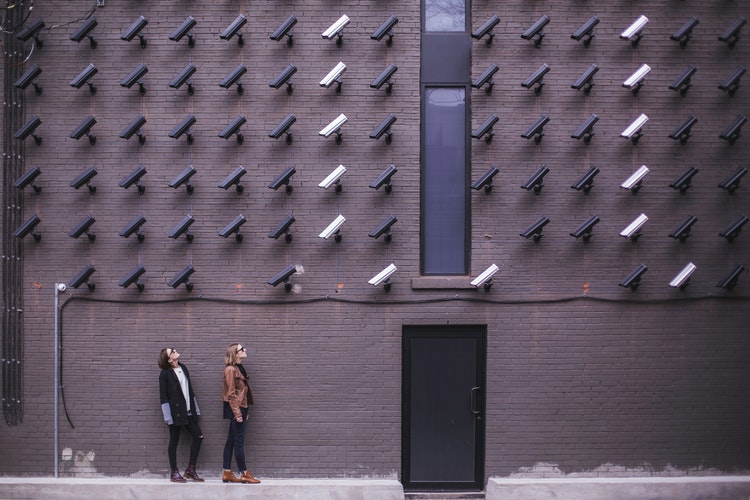
Photo Credit: pexels
Like it or not, the coronavirus pandemic is paving the way for a potentially dystopian digital surveillance state, similar to the kind warned about by George Orwell. In fact, some corners of the Internet are now referring to COVID-19 as #COVID1984 as a way of reminding people that a Big Brother-like surveillance state could be right around the corner if we don’t exercise caution on this moving forward.
Early signs of a surveillance state
The big question, of course, is whether you’d be willing to trade some of your privacy and freedom in exchange for safety and security. “Safety” is always the primary selling point of authoritarian governments, which selectively find ways to strip away rights, freedoms and liberties from citizens, all in the name of keeping people safe. Thus, anytime you are told that a technology will make you “safer,” always be willing to examine what it means for your personal privacy and civil liberties.
There are already stories going viral on social media about government drones used to follow citizens breaking quarantine, 24/7 surveillance of GPS tracking and cell phone data to track recent whereabouts of infected individuals, and bold new initiatives to use everything from AI-powered facial recognition to new smartphone apps to monitor your every move. Leave your home for any reason, and the government will know where you went, with whom you met, and how long you spent in any location.
Social media and the end of privacy
So where does social media figure into all this? In many ways, the ubiquity of smartphones and our familiarity with social media has made many of the initial forays into dystopian surveillance seem almost benign. We’re already used to marketers and advertisers using “geofencing” techniques to send us offers and deals when we’re within proximity of certain businesses, so why not use that same geofencing technology to spot people breaking quarantine? We’re so used to giving social media companies intimate details of our personal lives and all of our relationships that it doesn’t strike some as being particularly outside the boundary if we share some of that personal data with the government to track down infected individuals. As the Wall Street Journal noted in an article about digital surveillance in the era of coronavirus, this is “the first global pandemic in an age of ubiquitous smartphones,” so some have already conceded that this enhanced surveillance is “the new normal.”
Orwellian propaganda
Making matters even more confusing is the fact that nobody is flat out calling this “Orwellian surveillance” – they prefer to use more benign terms, such as “contact tracing.” All you digital marketers out there – it’s not “tracking,” it’s “tracing.” Brilliant. Who’s scared of a little tracing, right? And, of course, all data will be completely anonymous and not shared with any third parties. (Where have we heard that before?) Now that Google and Apple – two notorious rivals in the tech industry – are joining forces to create just such a “contact tracing” app capable of tracking anyone using an iPhone or Android device anywhere in the world, what could possibly go wrong?
If you think about it, most of America is already under a form of “house arrest.” Instead of little ankle bracelets reporting our every move to the authorities, we now have smartphones beaming out our exact whereabouts every few seconds. And, of course, the authorities aren’t calling it house arrest or even quarantine, they prefer the much more innocuous-sounding “shelter in place.” See how dystopian propaganda works? War is peace. Freedom is slavery. Ignorance is strength.
An Orwellian thought experiment
It will be interesting to see how all this plays out. Imagine this scenario for a moment: you show up at your workplace, and unknown to you, a thermal imaging camera on the street outside your office has already captured your temperature, used facial recognition to determine who you are, and immediately reported your fever to your boss and all of your contacts on social media. That launches a series of events outside of your control – you are not allowed to report to work, your employer seizes your cellphone and allows the government to analyze all of its location and tracking data, and then you are placed into a mandatory quarantine unit where drones, wearable sensors and cameras monitor your every move. You are now a pariah in society, with no rights and no freedoms. Congratulations, you now know what it feels like to be a citizen living in George Orwell’s 1984.